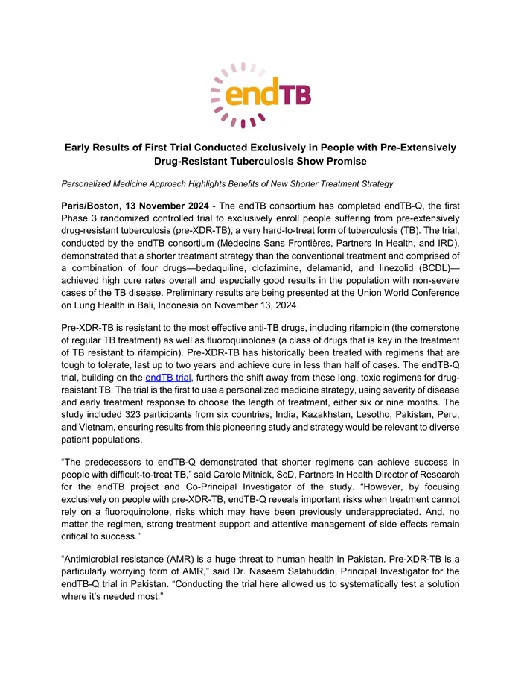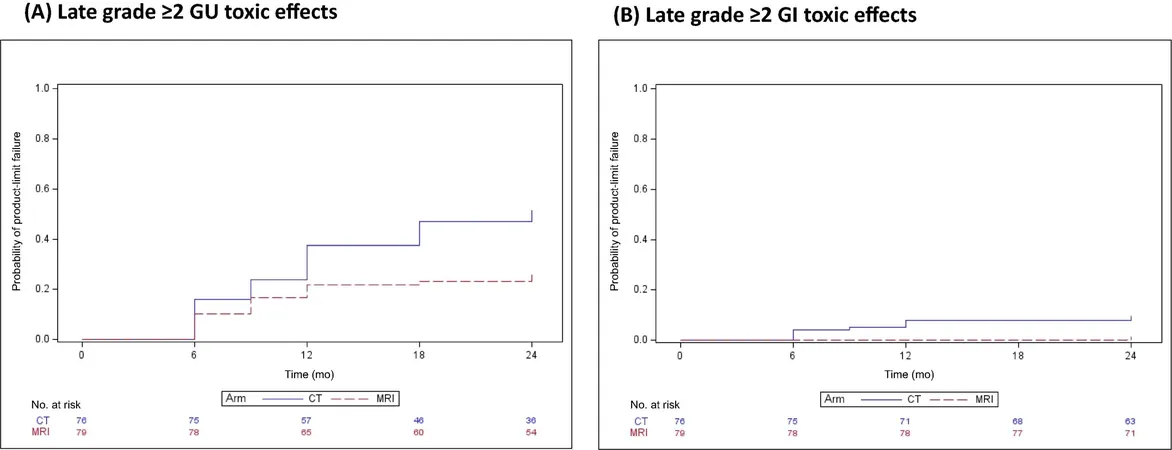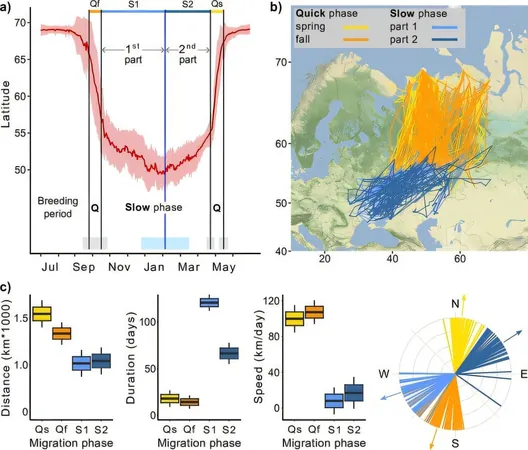
Groundbreaking Trial for Pre-Extensively Drug-Resistant Tuberculosis Shows Hope for Shorter Treatment
2024-11-15
Author: Wei
Introduction
In a remarkable breakthrough, the endTB consortium has reported promising early results from the endTB-Q trial, the first Phase 3 trial exclusively targeting pre-extensively drug-resistant tuberculosis (pre-XDR-TB). Conducted in Paris and Boston, the study reveals the potential effectiveness of a new, shorter treatment strategy, marking a significant shift in the battle against this challenging form of tuberculosis (TB), which is notoriously difficult to treat.
Trial Overview
The endTB-Q trial tested a treatment regimen combining four drugs—bedaquiline, clofazimine, delamanid, and linezolid (BCDL)—over two durations, six and nine months. Preliminary results indicate high cure rates, particularly among patients with non-severe TB, achieving an impressive 93% cure rate when treatment was adjusted based on disease severity.
Historical Context
Historically, pre-XDR-TB has posed a significant threat, being resistant to the most potent anti-TB medications including rifampicin and fluoroquinolones. Conventional regimens can last up to two years and often yield cure rates below 50%. The new trial, however, diverges from these lengthy treatments by adopting a personalized medicine approach, a strategy that considers the patient's response to treatment alongside disease severity.
Expert Insights
Dr. Carole Mitnick of Partners In Health stated, "The success of shorter regimens for difficult-to-treat TB has been known, but endTB-Q highlights the hidden dangers when treating patients without the aid of fluoroquinolones. The results underscore the necessity of robust treatment support and vigilant management of side effects."
Participating Countries and Demographics
Participating countries included India, Kazakhstan, Lesotho, Pakistan, Peru, and Vietnam, with a total of 323 participants. This diversity ensures that the findings are applicable to various populations affected by this severe form of TB.
Key Findings
Key findings from the trial include: - BCDL treatment for six and nine months resulted in 87% cure rates, slightly below the 89% attained with longer regimens. - For patients starting treatment with non-severe TB, the six-month regimen showed outstanding results, but nine months was required for those with severe cases to avoid relapse. - The trial adopted an innovative design by using an internal control group, paving the way for more tailored treatment approaches.
Further Expert Commentary
Dr. Lorenzo Guglielmetti from Médecins Sans Frontières emphasized the importance of personalized treatment, noting that while shorter regimens may be effective for non-severe cases, patients with severe TB may need longer treatments.
Implications for Antimicrobial Resistance
This trial's findings contribute significantly to the ongoing dialogue on antimicrobial resistance (AMR), an escalating crisis in global health. As noted by Dr. Naseem Salahuddin in Pakistan, pre-XDR-TB exemplifies the urgent challenge posed by AMR in high-burden countries.
Future Directions
Dr. Philippe Duneton, executive director of Unitaid, highlighted the critical need for a deeper understanding of effective treatment methodologies for drug-resistant TB. He stressed the importance of community-centered approaches in enhancing care.
Conclusion
With these results, the endTB-Q clinical trial signifies a pivotal advancement in changing the landscape of treatment for pre-XDR-TB. As global efforts to combat TB continue, this research represents a beacon of hope and a step toward shorter and more effective treatment strategies for one of the world’s deadliest infectious diseases.



 Brasil (PT)
Brasil (PT)
 Canada (EN)
Canada (EN)
 Chile (ES)
Chile (ES)
 España (ES)
España (ES)
 France (FR)
France (FR)
 Hong Kong (EN)
Hong Kong (EN)
 Italia (IT)
Italia (IT)
 日本 (JA)
日本 (JA)
 Magyarország (HU)
Magyarország (HU)
 Norge (NO)
Norge (NO)
 Polska (PL)
Polska (PL)
 Schweiz (DE)
Schweiz (DE)
 Singapore (EN)
Singapore (EN)
 Sverige (SV)
Sverige (SV)
 Suomi (FI)
Suomi (FI)
 Türkiye (TR)
Türkiye (TR)